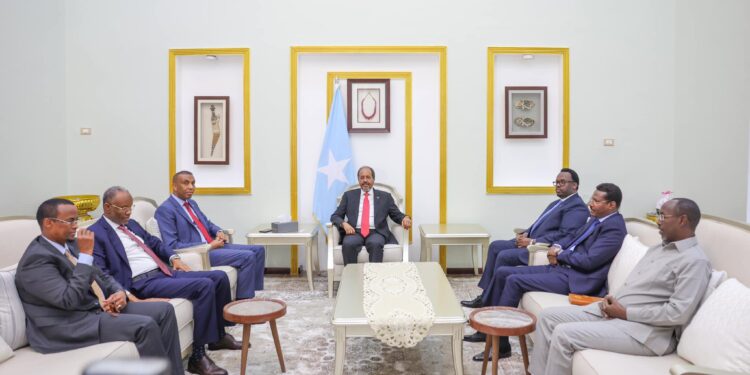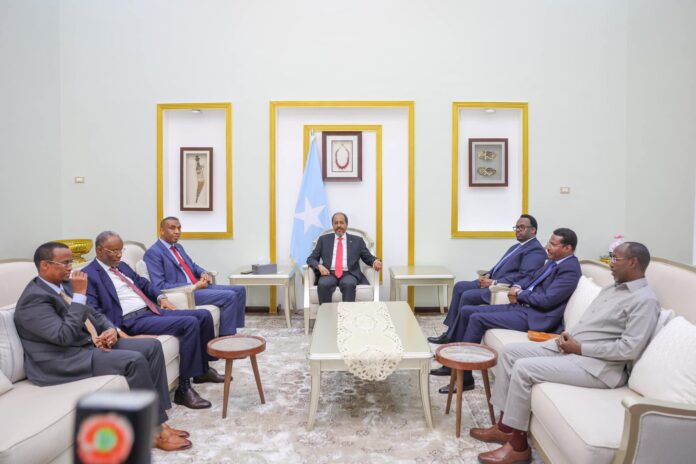MOGADISHU, Somalia — The nation’s federal authorities together with a number of regional leaders have agreed to a postponement of the extremely anticipated direct elections. This choice delays native elections to June 2025 and regional parliamentary and management elections to September 2025, marking a notable shift from the unique schedule which had anticipated native elections in June 2024 and parliamentary votes by November 2024.
This settlement, which got here after weeks of intense negotiations in Mogadishu, displays the advanced dynamics inside Somalia’s political construction. The transfer in the direction of holding direct, party-based elections is hailed as a historic step in the direction of democratization, aiming to switch the beforehand contentious oblique voting programs.
Nonetheless, this choice was not embraced by all areas. Notably, Jubaland and Puntland, key autonomous areas, didn’t partake in these discussions, indicating ongoing regional disagreements over election timelines and methodologies.
The absence of those areas underscores the persistent tensions and differing political methods inside Somalia. Whereas the central authorities and collaborating areas push for a unified strategy in the direction of democratic elections, Jubaland and Puntland’s stance highlights their reservations or maybe completely different priorities relating to governance and autonomy.
This election delay additionally touches on broader implications for stability and governance in Somalia. The shift to direct elections is seen as a vital step in the direction of consolidating democracy and lowering clan-based politics, which has been an indicator of Somali politics for many years. Nonetheless, the shortage of consensus amongst all areas may complicate the implementation of those elections, doubtlessly affecting the legitimacy and inclusivity of the method.
Moreover, the delay has stirred reactions throughout varied spectrums inside Somalia and internationally, with some seeing it as a practical transfer given the logistical and safety challenges of organizing such elections in a rustic nonetheless grappling with safety points like these posed by Al-Shabaab. Critics, nevertheless, view this as one other signal of political indecision that might additional erode belief in authorities establishments.
As Somalia navigates these electoral waters, the worldwide group watches intently, with hopes that this delay may truly contribute to better-prepared, extra clear, and broadly accepted elections when they’re finally held. The highway to democratic elections in Somalia stays fraught with challenges, however this settlement may very well be seen as a step, albeit delayed, in the direction of a extra consultant governance system.










